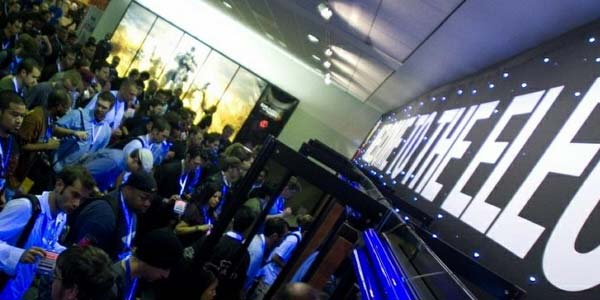With the main presentations behind us and the E3 convention starting to wrap up, we’re left with weeks’ worth of news to sort through and—at least, personally—a residual disappointment in the ‘new’ things revealed and the convention as a whole. Don’t get me wrong, there were lots of exciting things, and some of the conventions did keep me interested. But there’s a startling trend I’ve noticed as the years go by and E3 continues to roll around—the convention is focusing less and less on gamers, and more and more on investors.
Starting with Microsoft and slowly seeping into the other big two developers, games have become less of a focus and more of a feature to their high-end consoles. Pitched alongside games are other features—in this year’s con, Internet Explorer 8, new music apps, the Nintendo Balance Board, and Sony’s Wonderbook come to mind. While these are all ‘charming’ features, they steal time during the show from the main attraction—actual video games. You know, for the video game consoles. Attempting to give a video game console a purpose other than to play video games is just a ploy on the part of the companies to score some good investments.
This year was particularly depressing, with all companies involved displaying very few new games. It’s true that E3 encompasses all forms of electronic entertainment (as its name would imply), and not just video games, but for companies whose main focus and main attraction are its games and games consoles, choosing not to focus on them during the presentation is a little insulting to the people who were anxiously waiting for those announcements.
All of the companies this year focused on alternative ways of using previously conceived technology—we already knew most of the Wii U information before the con—and continuing to support their spin-off products, such as the Move and Kinect. That’s wonderful and all, and gives hope to the people who were suckered into buying one of those that a real game might arrive for the peripherals soon, but the majority of gamers do not have those technologies and aren’t interested in something they neither own nor are interested in. Ten years ago, you could watch an E3 and be wowed by the game announcements. Now it all sounds like a really long investment pitch, and the worst part about it is that quite a few of this year’s conventions even skirted into boring territory.
The economy has taken a turn for the worst and inflation seems to be boosting production costs and game prices, but as we get through a rather boring and disappointing E3, I have to wonder exactly how much pitching to investors will convince gamers to buy. The charm and excitement of past E3s has given way to music concerts and comedic skits. There is no single company to blame this on, since all companies share the same monetary interest as they pitch their games. E3 is no longer about news. It’s about investments. Are Sony, Nintendo, and Microsoft really entitled to pitch to investors rather than gamers? Is it selfish of gamers to want a focus on games rather than peripheral products? Let us know in the comments section!


0 Comments